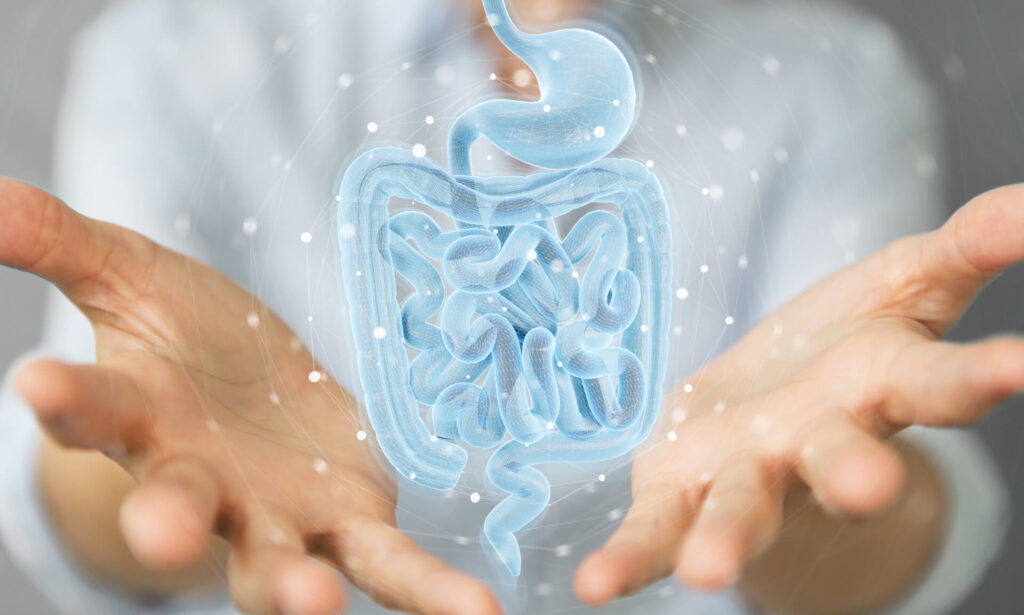Many describe living with depression as feeling perpetually drained as if their life force is running on empty. It’s a state where one constantly struggles with exhaustion despite adequate rest and where motivation and joy seem to slip through one’s fingers like sand. This pervasive fatigue, a hallmark symptom of depression, isn’t just a metaphor for a low mood—it may very well signify a literal depletion of energy. In this blog, we’ll explore depression through the unique lens of energy balance, offering insights and strategies that can rekindle your inner spark by rebalancing your energy.
Let's Get Started
Key Drivers of Energy Imbalance in Depression
To simplify the multiple causes that are likely leading to your depleted state, let’s break them down into two fundamental categories:
1) Inadequate Energy Inputs
2) Excessive Energy Drains
As you read these categories, pause and contemplate which ones resonate with your experience, and make a note of them. Recognizing the sources of your energy imbalance is the first step towards regaining control and restoring balance to your life.
1) Inadequate Energy Inputs
Diet: Poor diet is increasingly recognized as a root cause of many mental health issues, including depression and dementia. This awareness has led to the establishment of Metabolic Psychiatry units in top medical centers. Take a moment to reflect on the quality and quantity of the fuel you’re providing your body. Are you addicted to refined carbs, experiencing sugar cravings that lead to rapid spikes and crashes in your blood sugar, resulting in mood swings, irritability (often termed “hangry”), and fatigue?
Are you consuming adequate omega-3 fatty acids, which are vital for the synthesizing and proper functioning of your neurotransmitters like serotonin and dopamine? Is your diet high in processed foods and low in fibre-rich foods, both of which can damage your microbiome, trigger chronic inflammation, and affect your emotions through the gut-brain axis?

Exercise: How often do you engage in physical exercise that elevates your heart rate and boosts your mood? A recent meta-analysis in the British Medical Journal found exercise to be as effective as antidepressants or psychotherapy in improving depression.
Sunlight: How much natural light do you get daily, and how might this influence your mood? Sunlight is Earth’s strongest energy source, and we absorb it. Does your daily environment and routine provide enough sunlight, essential for mood regulation and aligning your circadian rhythms? Do you notice an improvement in your mood during summer or when on sunny winter vacations? If you’re predominantly indoors, regardless of living in a tropical region, you’re likely missing out on sunlight’s advantages, as low-E and tempered glass block its beneficial effects.
Sleep: Are you getting enough restful sleep? Your brain and body need deep sleep to clear out toxins and restore energy levels. Is your sleep pattern consistent, with sleeping and waking around the same time every day? Consistency synchronizes your circadian rhythms to maximise energy levels and mood regulation.
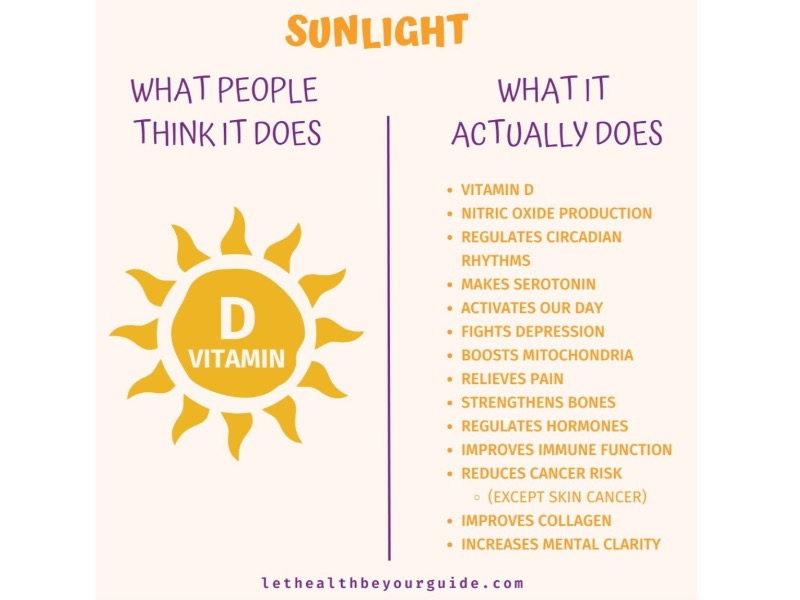
Social Isolation/Loss: Did you know that the quality of your relationships is a more significant predictor of early death than obesity and physical inactivity and is the most important predictor of a happy life?
Are you socially isolated, or have you experienced loss? Social isolation reduces your access to energizing interactions and emotional support. Sudden losses cut you off from an energy field you resonated with, leading to a sharp and sudden loss of an energy source.
Nature: How much time do you dedicate to immersing yourself in nature, away from electronic devices? Scientific evidence increasingly supports Ecotherapy, or Nature Therapy, as a means to enhance energy levels and mental clarity and reduce depressive thoughts.
Studies recommend spending at least 120 minutes weekly in natural surroundings to achieve these benefits. However, interacting with your phone during this time can negate all positive effects.
2) Excessive Energy Drains
Now, let’s look at the most common causes of excessive energy drains that may lead to our depleted energy state.

Chronic Stress: Stress is inevitable, and pushing ourselves can foster resilience. However, when stress from work, relationships, or past trauma becomes overwhelming and persistent—leaving you lying awake at night for weeks or months, feeling utterly drained—it’s a clear sign your reserves are depleted.
Negative Mindset: A habitual focus on pessimism, worry, and self-criticism fuels stress and emotional exhaustion. If negativity is your default perspective, it’s time to assess its impact on your well-being.
Toxic Relationships: Examine your relationships. Are they supportive or consistently draining? Toxic dynamics can significantly impact your emotional health.
Substance Use: Drugs and alcohol may seem like escapes but can worsen fatigue and deepen depression, offering temporary relief but long-term harm.
It’s vital to recognize these drains on your energy and address them to prevent their cumulative effect on depression.
8 Steps to Rebalance Your Energy
Our energy is often taxed by our core responsibilities—family, work, and caregiving. While cutting ties with these sources isn’t realistic or desirable, we must heed our body’s signals and find a balance between output and rejuvenation. The following section offers nine practical steps to boost our energy reserves, manage draining responsibilities, and adopt a healthier mindset. By emphasizing replenishment and reshaping our approach to life’s demands, we can navigate a path toward better energy management.
1) Optimizing Your Energy Through Diet
Diet plays a pivotal role in the management and prevention of various mental health issues, including depression, anxiety, seizures, and even dementia. The concept is simple yet profound: food acts as fuel. Without the appropriate nourishment, your body and mind can deteriorate at an accelerated pace.

At the cellular level, your mitochondria—often called the powerhouses of your cells—convert glucose derived from carbohydrates and fatty acids derived from fats into ATP, which serves as the cells’ primary energy currency. Fatty acids, in particular, are recognized for being a more efficient, steady, long-lasting energy source of fuel. This differs from the more rapid, fluctuating energy supply derived from glucose, which can lead to blood sugar spikes and dips associated with energy crashes and mood swings. If you experience mood swings and energy crashes throughout your day, consider getting more of your fuel from fat and less from carbs and make sure the carbs you do eat are low on the glycemic index (GI) range.
Incorporating healthy fats into your diet is also essential. Opt for grass-fed meats, wild-caught fish, seafood, nuts, and seeds, and supplement with 2000mg of omega-3s. Details on Omega-3 supplementation are covered in this Instagram post here. Opt for cold-pressed olive oil for salads and low-temperature cooking (smoke point 375-410F or 190-210C) and Avocado Oil for higher-temperature cooking (smoke point 480-520F or 249-271C).
Avoid processed foods, which negatively impact your microbiome. A good rule of thumb is that the longer the list of ingredients on a product’s label, the more heavily processed the food likely is.
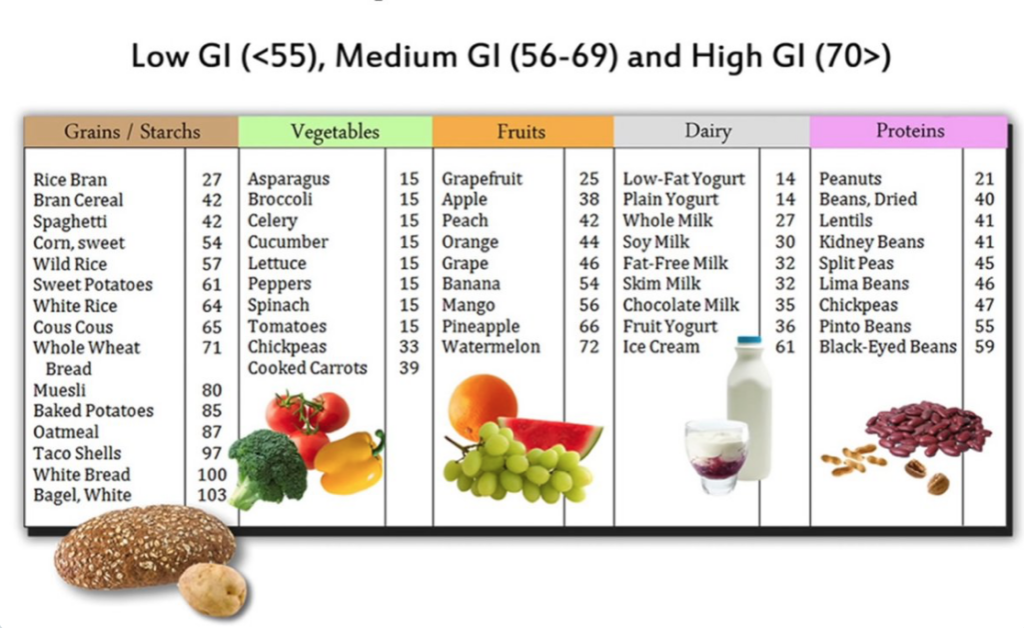
A diverse intake of antioxidants is vital—they not only nourish your microbiome but also support the efficient functioning of your mitochondria. Consuming a variety of fruits and vegetables, colloquially referred to as “eating a rainbow,” can help achieve this.
For individuals showing signs of insulin resistance—evidenced by conditions such as elevated fasting blood sugar levels, high HbA1c, or elevated triglycerides, and a diagnosis of major depression — a more in-depth exploration into diet and its impacts on mental health is recommended. Dr. Georgia Ede’s book “Change your Diet, Change your Mind” might provide invaluable insights and or search for a metabolic psychiatry unit near you.
Key Point: Adopt a diet focused on low-glycemic carbohydrates, healthy fats, whole foods and a wide spectrum of antioxidants. Stick to foods that don’t require labels.
2) Energize with Exercise
A March 2024 study in the British Medical Journal finds regular exercise as effective as antidepressants for depression, boosting mood-enhancing endorphins, serotonin, dopamine, and norepinephrine. It reduces stress, improves sleep, and enhances mental clarity, combating depression and anxiety. Begin with daily activities like brisk walking outdoors to improve mood. Add strenuous exercise such as aerobics, spin, or whatever feels good for you for more benefits. Mix it up, make it social and make it work for you and your routine. Avoid intense workouts 2 hours before bedtime to maintain sleep quality.
3) Sunlight, a Potent Antidepressant
Sunlight is Earth’s most powerful energy source, and we absorb it! Our eyes contain a light-sensitive pigment called melanopsin, which responds to the blue light found in early morning sunlight (light around 1 hour after sunrise), signalling our brain to produce serotonin, the feel-good hormone.
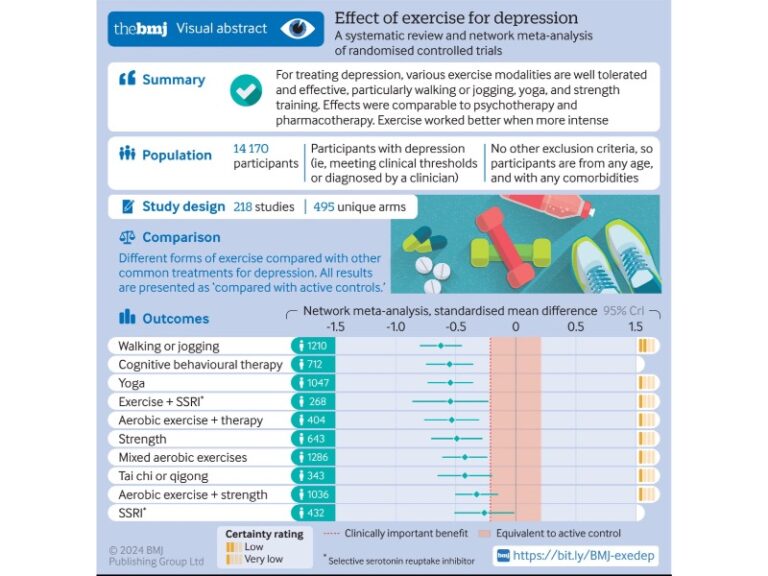
Head outside without your glasses for best results, as viewing sunlight through glass or car windows is 50 times less effective. As long as sunlight keeps triggering your melanopsin, you make more serotonin, so take regular sunlight breaks throughout the day. Never look directly at the sun. Take in a sunset if you can; the lower energy reds in a sunset trigger your brain to begin converting that serotonin into melatonin to help you sleep.
If your depression is worse in winter, lack of sunlight is likely a factor in your mood. Read (here) how to manage your winter blues and review our X post on making the most of winter sun.
4) Improve your Sleep and Reset your Circadian Rhythms
Optimal sleep and a well-synchronized circadian rhythm are foundational to maintaining a balanced mood. They act as natural energy restorers that combat the exhaustive nature of depression. If you find yourself battling with sleep issues or irregular sleep patterns, I encourage you to explore our previously shared strategies in the dedicated blogs (Sleep)(Resynch your Circadian Rhythms). These resources are designed to guide you toward improved sleep quality and a reset circadian rhythm, empowering you in your journey toward mental wellness.
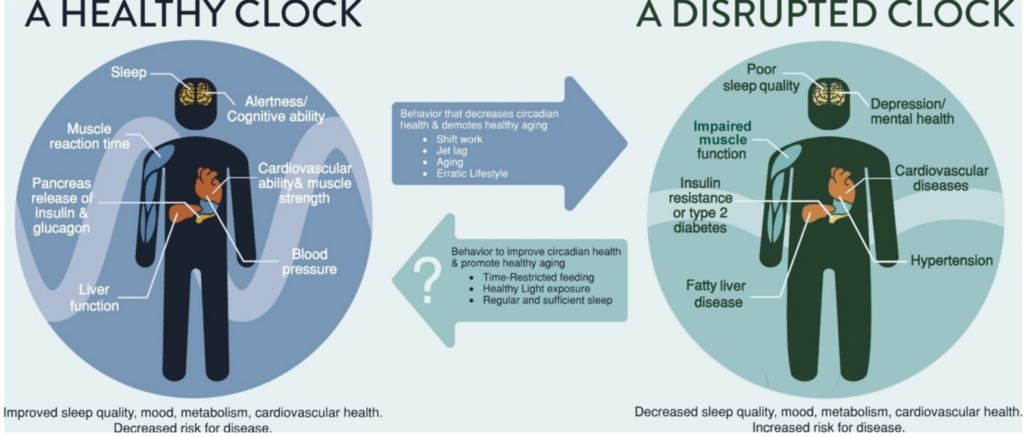
5) Cultivate your Social Fitness
The quality of your relationships is one of the biggest predictors of a happy life. Just like physical fitness, good relationships require active maintenance to thrive. Here are five actionable tips on how to improve your social fitness, drawn from one of our recent Instagram posts:
– Reach Out & Reconnect: Rediscover old friends to bring joy and a sense of belonging back into your life.
– Join a Group or Class: Stick with it for at least two months to tap into the ‘mere exposure effect’ and foster a sense of belonging.
– Quality Over Quantity: Nurture enriching connections rather than focusing solely on the number of connections.
– Use Social Media Wisely. Engage actively, not passively. But if social media displaces offline activities, it makes us more lonely.
– Talk to Strangers: Engage with others and spread kindness by initiating conversations with strangers.

6) Incorporate Ecotherapy
Numerous studies consistently demonstrate that spending time in green spaces can significantly increase energy levels and decrease depressive thoughts. It fosters a sense of calmness and reduces mental fatigue. Moreover, regular exposure to nature not only enhances mood and energy but also improves sleep quality, boosts the immune system, enhances concentration, stimulates creativity, and deepens one’s connection with oneself and the environment.
Studies suggest dedicating 120 minutes weekly to natural surroundings to experience these benefits fully. However, it’s crucial to note that all these benefits are lost if you interact with your phone instead of taking in the sights, sounds, and smells of nature!
7) Achieving Balance: Family, Work, and Responsibilities
No one benefits from you getting depleted; Maintaining balance is vital for everyone’s well-being. Prioritize self-care with healthy routines and establish clear boundaries to safeguard your time. Delegate tasks to lighten your load and openly communicate your needs. Seek support from a supportive community for shared experiences and assistance.
It’s crucial to heed our body’s signals when an imbalance occurs. Symptoms such as fatigue, irritability, sleep disturbances, general pain, and digestive issues serve as warnings. Listening to these signals prevents the stress of responsibilities from escalating into serious illness.
8) Transform Your Mindset

Revamping your mindset is essential for restoring balance to your energy levels. Many individuals grappling with depression harbour a skewed perception of themselves and the world, often rooted in past experiences that have wired their brains toward negativity. Understanding that these perceptions are not immutable truths opens doors to transformative approaches for improving mental health, including:
Psychotherapy: This method aids in challenging and reframing negative views, proving as effective as antidepressants but with fewer relapses.
Psychedelic Therapy: Recent studies, such as one published in JAMA, indicate that psilocybin’s impact on depression surpasses that of psychotherapy by 2.5 times and SSRI antidepressants by over 4 times. Effects can last 6-12 months after just 1 or 2 doses, administered several weeks apart. For a deeper understanding of psilocybin’s mechanismon mood, visit (here).
Cultivate Daily Gratitude: Daily gratitude practice is a straightforward yet potent tool to rewire our brains for positivity and harmony. By consistently focusing on our blessings—what we appreciate in our lives and within ourselves—we shift our perspective and mindset toward positivity and contentment. This rewiring process not only boosts our overall well-being but also fortifies our resilience against life’s inevitable challenges. Practice gratitude daily, ideally first thing in the morning, and within a few weeks, you’ll notice a more positive outlook on yourself and your life.

A Note on Antidepressants
Antidepressants are invaluable tools, often life-saving, yet they primarily address symptoms rather than address the root causes of emotional depletion. Like painkillers, they relieve discomfort without addressing the cause of that discomfort.
For mild to moderate depression, I advocate addressing underlying lifestyle or mindset factors contributing to depletion for sustainable solutions. However, if confronting these issues feels overwhelming, antidepressants can provide an initial boost. Once stabilized, redirect efforts toward resolving the root causes of your depleted state.
Putting it All Together
Embracing the ebb and flow of emotions as a natural part of life, we recognize that periods of sadness are essential for appreciating happiness. While no one can be perpetually happy, cultivating a joy-filled life is within reach.
Contrary to public perception, most cases of mild to moderate depression are not genetic-based but lifestyle and environmental-based. Just because there is a family history of depression does not mean it is genetic. Families do not just share similar genes; they share environmental factors, lifestyle choices, coping skills and mindsets. Yes, altered genes such as BDNF (brain-derived neurotrophic factor ) have been associated with depression, but exercise, a nutritious diet, sleep, stress management, and social support can alter BDNF expression. DNA doesn’t determine destiny; your choices do.
Viewing depression as a state of depletion provides you with a fresh perspective on how to replenish your energy and spirit. Prioritize boosting your energy intake, seek balance in your energy depleters, and shift your mindset toward positivity and resilience. Believe in your ability to change and heal.
References
- Change your Diet Change your Mind- Georgia Ede, MD
- Exercise for the treatment of Depression
- The Potential for Outdoor Nature-Based Interventions in the Treatment and Prevention of Depression
- Walking on Sunshine: The light of Day improves Mental Health
- Psilocybin for Mental Health: What You Need to Know.
- Social Relationships and Mortality Risk: A Meta-analytic Review
- The Science of Sleep: 5 Lifestyle Adjustments for Better Sleep
- Resynching CircadianRhythms: Your Gateway to Optimal Health
- Sunlight-Part 2: Eight Ways to Use Sunlight Therapy


